Nepal charter protesters in long fight for equality
More than 40 people have been killed in clashes between police and protesters representing ethnic minorities
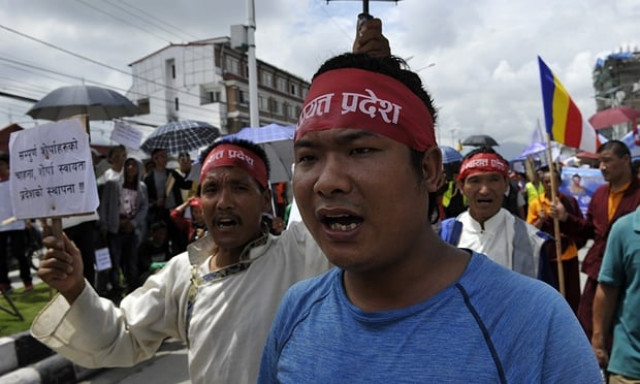
Nepalese Sherpas take part in a rally in Kathmandu calling for secularism in the new constitution. PHOTO: AFP
More than 40 people have been killed in clashes between police and protesters representing ethnic minorities who say a new federal structure laid out in the constitution will leave them under-represented in the national parliament.
Among them are the Madhesis, who inhabit Nepal's southern plains along the border with India known as the Terai, home to half the population and where many of the deaths occurred.
Since last Thursday, they have blocked a bridge that is the key trade route into Nepal from India, a lifeline for the landlocked Himalayan nation, which imports all its fuel.
"This is our last resort. Until Kathmandu feels our pain, our demands will not be heard," said Ram Shahaya Yadav, general secretary of the regional party Sangiya Samajwadi Forum.
"Have you seen a single leader from the ruling parties come here to listen to us?" he demanded, as hundreds of protesters blocked the bridge in Birgunj, 90 kilometres (55 miles) south of Kathmandu.
Nepal's Madhesis have long complained of discrimination, with many encountering prejudice due to their physical resemblance and close cultural, linguistic and family ties to Indians living across the border.
Many were denied citizenship, rendering them stateless, until a 2006 law that allowed non-Nepali speakers born and raised in the country to become naturalised citizens.
They accuse police of brutality in handling the protests against the constitution, which was adopted on September 20 and is the final stage in a peace process that began when Maoist rebels laid down their arms in 2006 after a decade-long insurgency.
Dozens were killed when Nepal's security forces fired rubber bullets into crowds of demonstrators, triggering revenge killings of police, in some of the worst violence the country has seen since the end of the civil war.
"Do we not have the right to protest against our government?" demanded 21-year-old Madhesi student Nabin Kumar Singh, who said he and his friends had been beaten by security forces.
"In Kathmandu, police use water cannon, why do they use bullets here, why are they killing their citizens?"
"Someday I would like a respectable job, where people will look up to me. But I have very little chance because I am a Madhesi. I want that to change," he told AFP.
Nepal began rationing fuel on Monday after announcing at the weekend that it would allow drivers on the roads only on alternate days, depending on their licence plates.
The restrictions have generated anger over what many in Nepal see as an undeclared blockade by New Delhi, which has made no secret of its dissatisfaction over the passing of the new constitution without national consensus.
The Indian government has denied the allegations, and urged dialogue with the protesters to end the stand-off. But the crisis has exposed deep divisions in Nepal that many had hoped the constitution would help to resolve.
It is not the first time that anger has boiled over in the Terai — violent protests led by Madhesi groups in 2007 forced leaders to promise greater regional autonomy and representation in state bodies.
That was supposed to be included in the constitution, but today protesters say its provisions to increase the participation of historically marginalised groups through proportional representation have fallen short.
"People here feel betrayed. Leaders have missed an opportunity to unite Nepal," said Birgunj-based political analyst Chandra Kishor Jha.
The protesters want to see the new internal borders amended and to increase their community's representation in government bodies through proportional representation.
They also say a ban on naturalised citizens holding senior positions in government will disproportionately affect them, and want it to be lifted.
With commuters in Kathmandu lining up overnight at gas stations in fear of a looming shortage, protesters in Birgunj said they would not back down until their demands were met.
"This is a fight for self-respect... we are fighting for ourselves and our children," said villager Jamila Khatun. "We are also from Nepal. Where will we go if our country does not give us our rights?"

1721969212-0/BeFunky-collage]-(35)1721969212-0-208x130.webp)
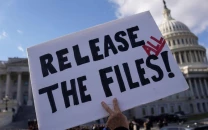
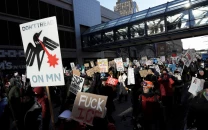

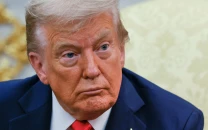
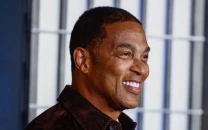












COMMENTS
Comments are moderated and generally will be posted if they are on-topic and not abusive.
For more information, please see our Comments FAQ